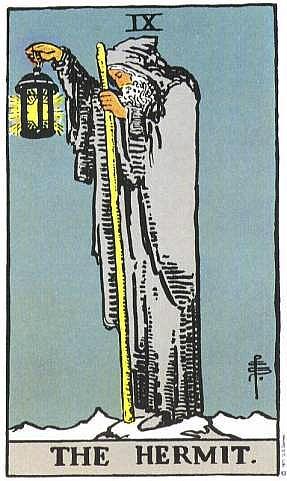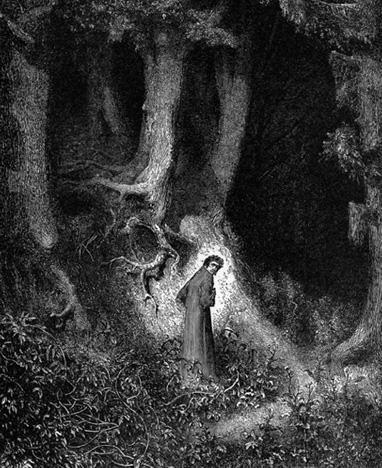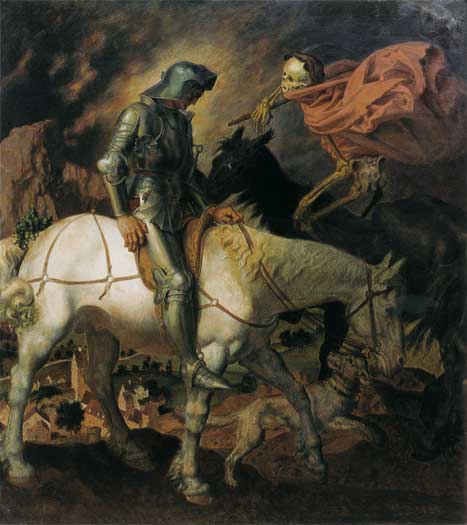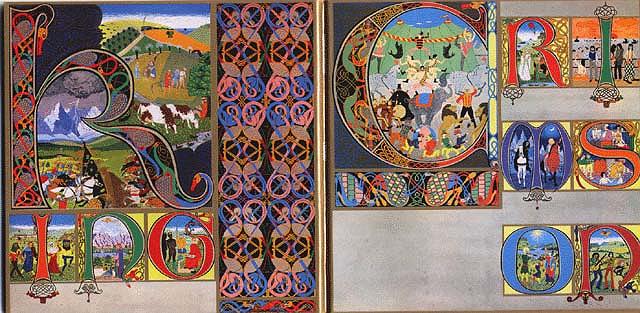
|
"He is the Buddha swearing to remain under the Bo tree,
he is Jesus going into the wilderness.
The Hermit must descend into darkness
in order for the light to be born within him.
When that light is born he can then return to the world
and see it with new eyes, because the world is now illuminated,
not by a physical light, but a spiritual light radiating from within him.
By going within, the whole universe is revealed."
- Hermit
"The spiritual description of death and rebirth as a "dark
night" comes from the writings of the great mystic St. John
of the Cross. In an eloquent way, he describes the dark night
as a long period of unknowing, loss, and despair that must
be traversed by spiritual seekers in order to empty and
humble themselves enough to receive divine inspiration. He
put it this way: "The soul that is attached to anything,
however much good there may be in it, will not arrive at the
liberty of the divine."
- The Dark Night
|


























 Arachnophilia
Arachnophilia